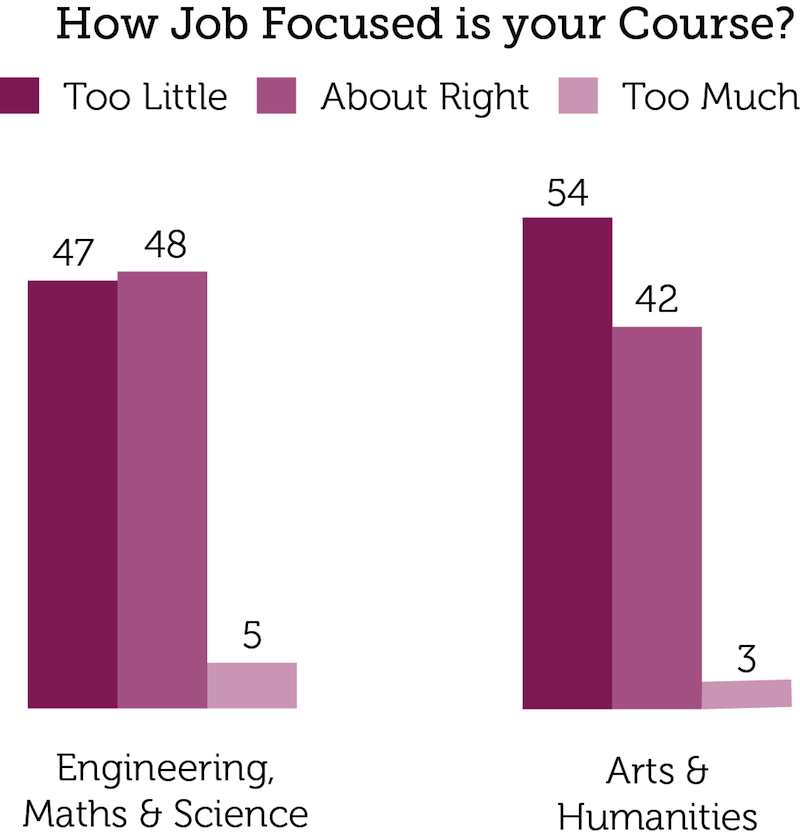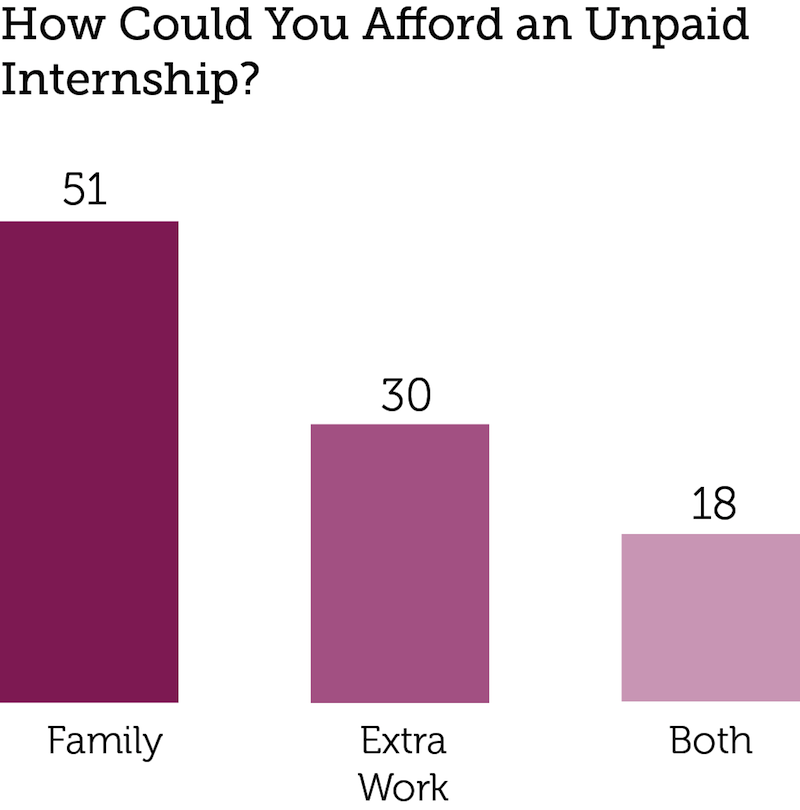Ciara Cosgrave|Contributing Writer
On the 30th of April 2014 The University Times reported on the cancellation of the unpaid internship which was circulated by Trinity College Law School. After probing into why the internship was unpaid the responding company replied by simply withdrawing the internship. The controversy over the legality of unpaid internships was thus brought to the steps of this university and continues to be an issue of much contention, particularly within the law school itself. As part of a large survey we completed two weeks ago we also delved into the issue of internships and especially how unpaid internships have a classist divide. If you are concerned about the legality of your employment or internship, it may be worth looking into the services that a place like https://www.hattonjameslegal.co.uk/ offers.

When looking into unpaid internships, Dr Desmond Ryan, lecturer of law and Director of undergraduate teaching and learning, confirmed that the law school intend to form a policy on this matter later this year. As the target market for these schemes, the issue is most pertinent for us, the student body. The recent survey byThe University Times revealed that some 52.6% of the engineering faculty and 63% of the arts faculty undertaken internships were paid below statutory minimum wage or nothing at all. The question now becomes are many of these internships are actually legal?
First of all, one must attempt to define what exactly an intern is from a legal perspective. The struggle with this reveals an almost self-fulfilling prophecy. There is no statutory definition of an intern. Major Dublin Solicitors Byrne and Wallace defined the role as ‘an individual who is engaged for a period of time to observe and gain experience in a particular business or profession’. However, it is truly a grey area of the law. While the lack of legislation is somewhat advantageous, the line between intern and employee is too often blurred.
The line between intern and employee is too often blurred
This line disappears completely when you lend the word employee to an intern’s work. However, the statutory definition of a contract of employment is broad and so the focus in figuring out that line falls on case law. From case law two things generally identify “employment”, if both these are present, the intern becomes an employee. Control and mutual benefit. IE if the owner/supervisor controls your work and what you do and there is some agreed return for that work (pay/benefits) then that is employment.
The opaque definition leaves ample room for the Courts to interpret a single case based on the facts. Thus many unpaid internships could easily be recognised as employment contracts. These unpaid internships now turn to the tumultuous area of illegal employment. However, what happens if the intern has waived their rights from the onset? By agreeing to free labour in exchange for the experience they will divulge, does it constitute consideration in the eyes of the law? Our survey revealed that some 77.3% of arts and humanities students would engage in a three month unpaid internship. Consequently, it is easy to conclude that the vast majority of us would consider it a necessary exchange for our careers.

However, from a legal outlook, just because one has placed a personal value over your own rights, the employer cannot subvert a preexisting legal duty. The employer is obliged to pay the statutory minimum wage which currently rests at €8.65 an hour, for any ‘working hours’. Consideration does not require an equity of arms, or for the benefits exchanged to be mirrored, but it does require that existing legal duties are not bypassed or compromised.
While there has been no case to date arising on this issue in the Irish courts, we can somewhat gauge how it may play out based on examples in the UK. In 2011 Keri Hudson took a claim against TPG Web Publishing under the UK equivalent of the National Minimum Wage Act. The facts of the case played out as what first appeared to be an agreed unpaid internship on Keri’s part, but escalated into a complete abuse of power by the employers. Hudson found herself working in cramped conditions with a supervisory role over another six interns. The UK Employment Tribunal subsequently found that Hudson was engaging in what the court prescribed as ‘real work’ which can be matched with the Irish concept of ‘working hours’.
If you need unpaid work to support your business your business is unviable in the first place
The harsh truth is that without fitting employment regulations, what may be a coveted internship in a prestigious firm is often little more than an abuse of power. Some argue that it must be taken into consideration that with the financial crisis firms simply don’t have the resources to facilitate paid internships, but really there is no excuse for unpaid work of any kind. They bar working class people from entry into an industry and if you need unpaid work to support your business your business is unviable in the first place.
Loopholes in payment for employment such as the JobBridge scheme are backed by legislation but hardly justify any private companies acting the same. That legal loophole for government schemes exists as the government has a social mandate. Companies have a very simple mandate towards their employees, an hours work deserves an hours pay. Experience is not payment as that costs a company nothing to give out. There is a general acceptance however that if your work doesn’t actually translate into work for the company (you’re not giving the company financial benefit by your presence) then there is no reasonable obligation on them to pay for your presence.
Even after the much publicised death of 21-year-old Moritz Erhardt, a Bank of America intern just last year, the UK have not installed reform on intern practice. So the likelihood is of little to no legislation happening soon in Ireland. While the case questioned working conditions and not issues of remuneration, the fact remains that an internship is not a loophole in the law to license illegal employment. The call for reform is obviously necessary. Not just to subdue the outrage following the death of someone so young, but it is necessary due to the fact that so many of us are willing to engage in this type of work. One cannot put a monetary value on experience. The reality is, however, that rights endowed by statute are non-negotiable. To allow this practice to go unlegislated is to enable employment rights for interns to regress, to what in some cases can only be described as slave labour.
All statistics on Trinity Students are from The University Times Education and Work Survey
Photo by Adam Fagen







